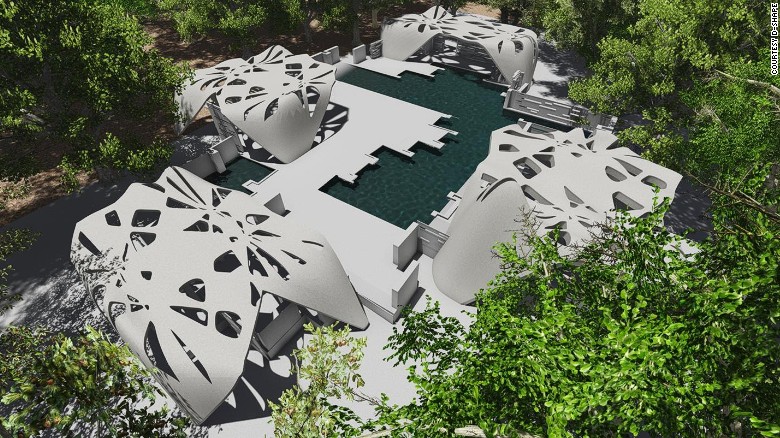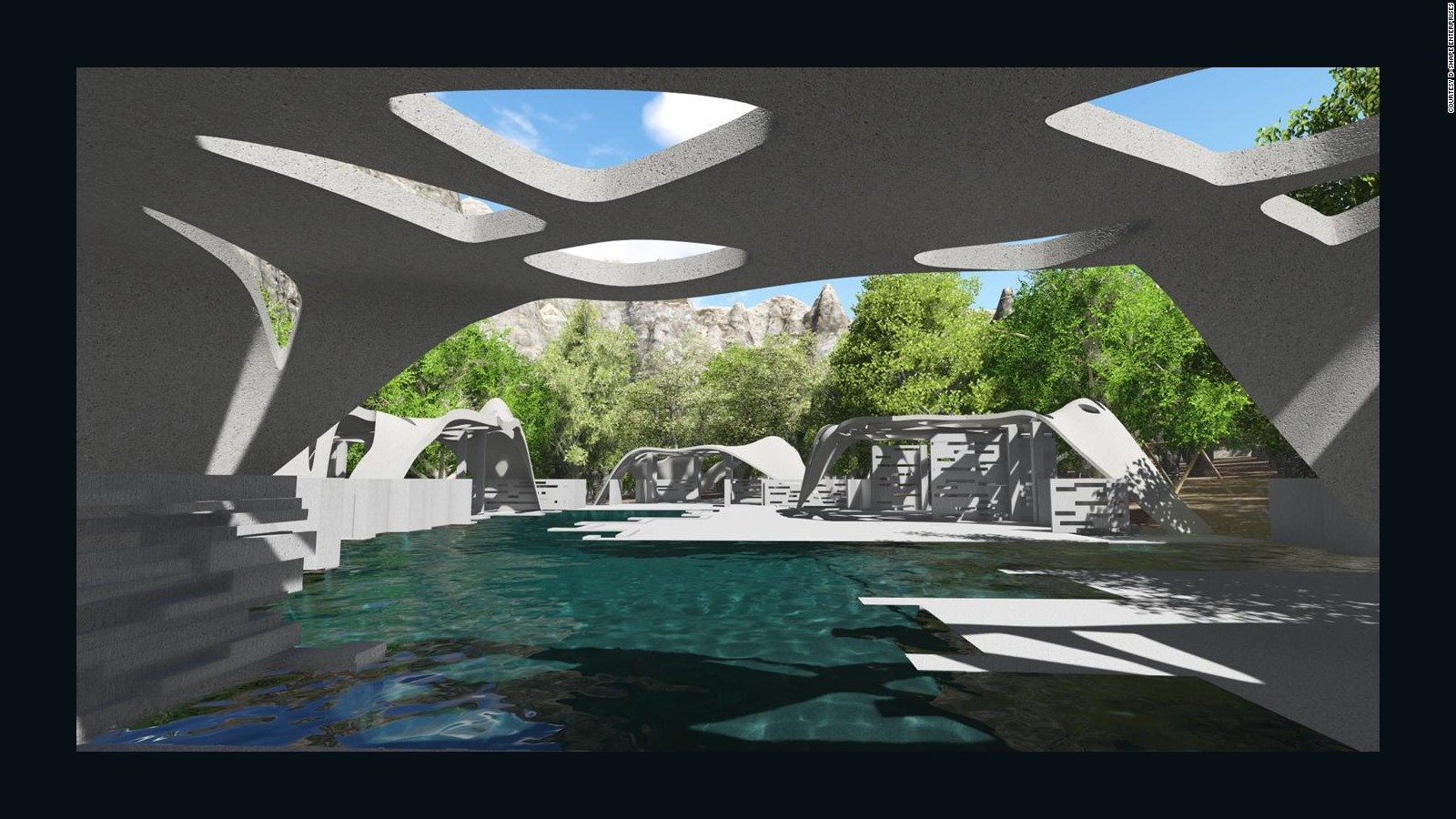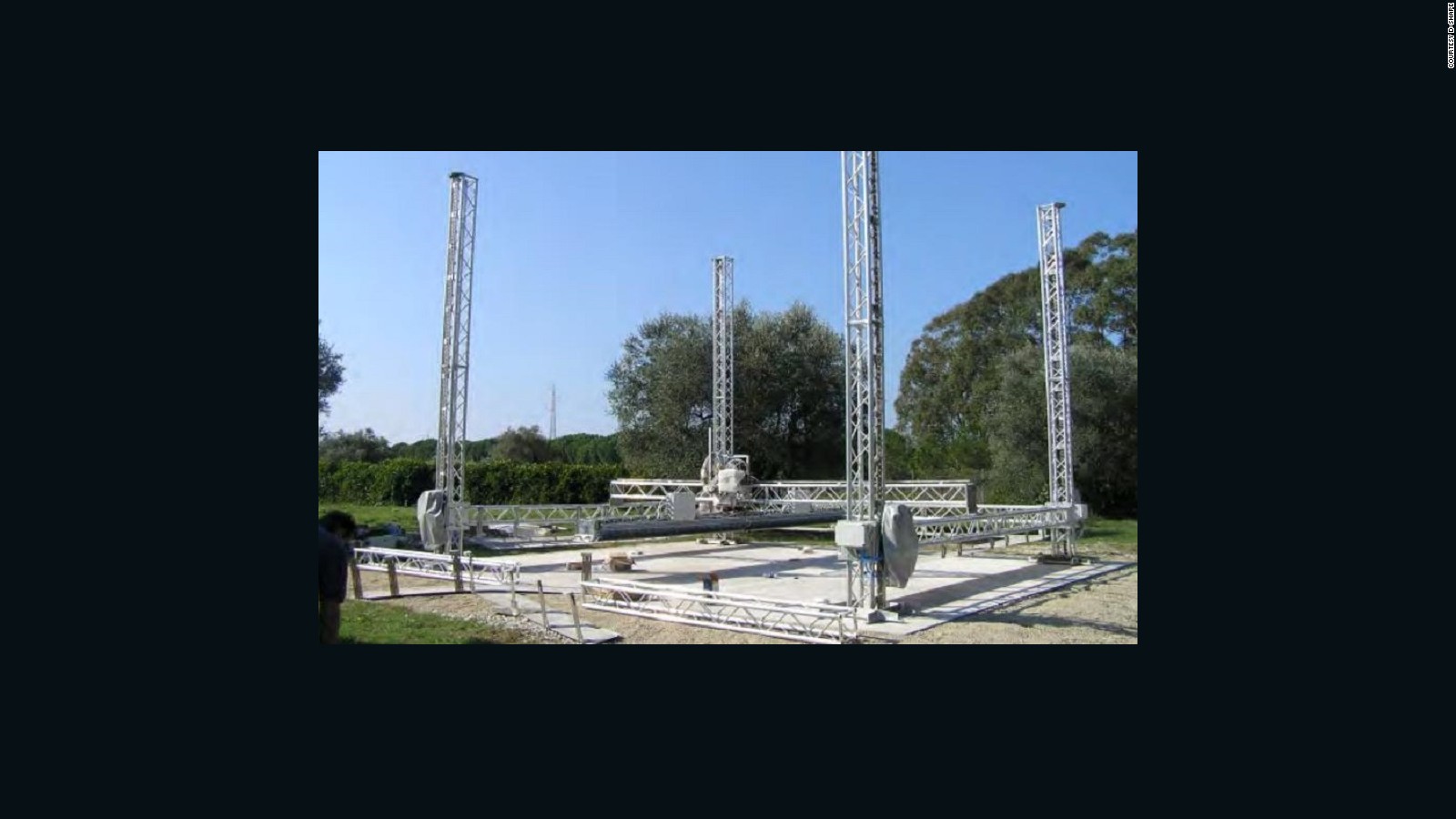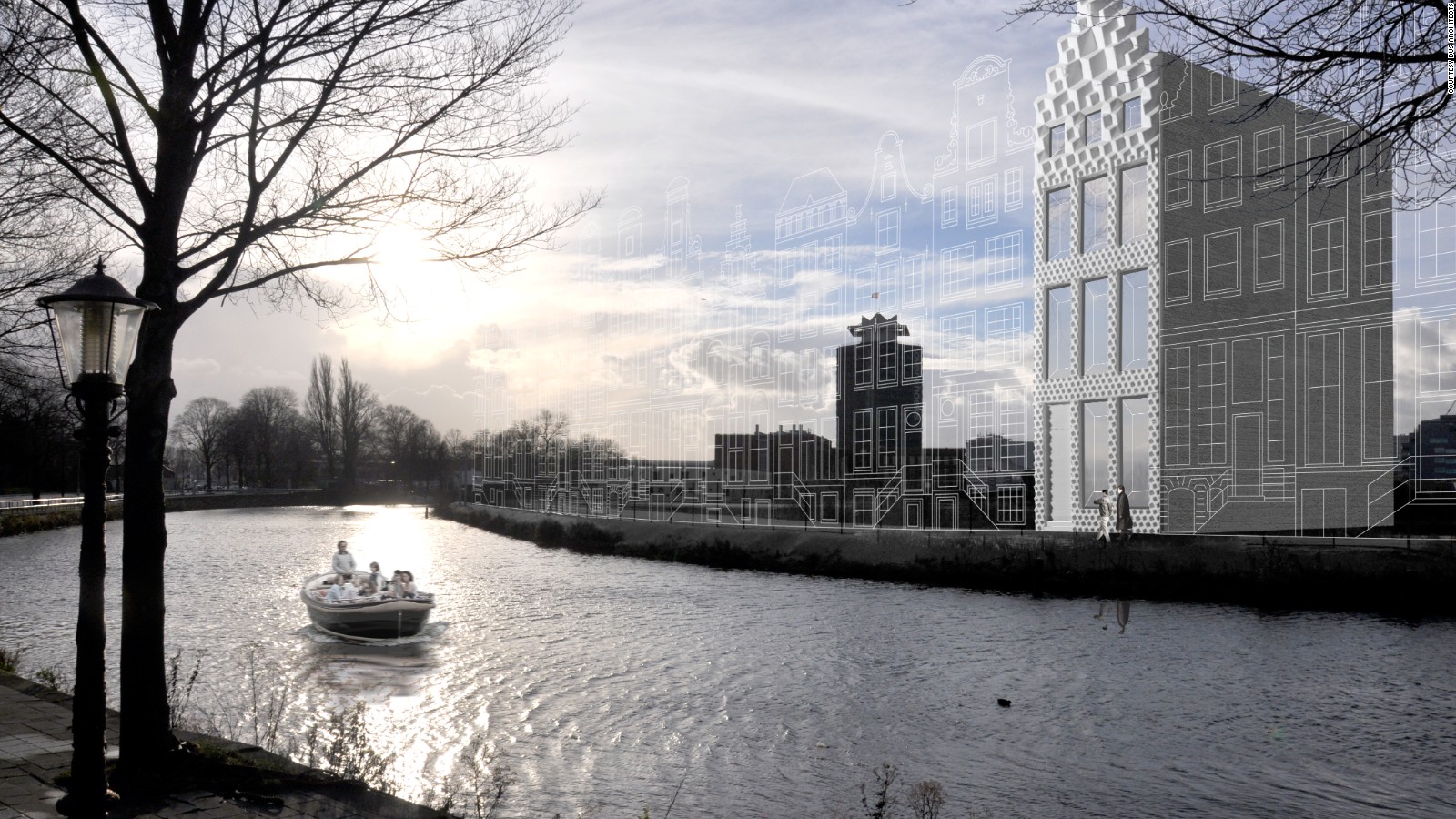The luxury 3D printed estate set to be made from sand, dust and gravel
 |
| (CNN)There's already a 3D-printed house being built in the Netherlands. In China, 3D-printed mansions are reportedly on the rise. |
Now,
a 3D printed estate featuring a swimming pool, jacuzzi, car port and
2,400 square foot house could be coming to a sleepy plot of land in
upstate New York.
The ambitious project is being undertaken by New York City architect Adam Kushner, alongside partners including 3D-printing pioneer Enrico Dini and his D-Shape firm.
Kushner told CNN that surveying has already begun with excavation work also set to commence soon.
The
swimming pool and jacuzzi are penciled in to be completed by December
2015 while construction of the house is expected to continue until the
end of 2017, he says.
 |
| An artists rendering of the pool house which will be 3D printed by D-Shape. |
But
the project hinges on getting the giant 3D printer, which will be used
to produce the digitally designed building blocks of the estate on-site,
into the country.
The
device is currently in Italy after it was originally being built for a
project partly funded by the Italian defense agencies. Military
clearance is now required before the green light is given to export the
printer to the United States, Dini says.
The
delay in receiving this clearance is part of the reason the project has
been held up since it was first announced back in August 2014.
"We
are now waiting (for) permission to borrow the printer (from the
military)," Dini says. "If I had another printer I'd send it there
tomorrow, but unfortunately we don't have and must wait."
The litmus test
Whatever
the import-export issues, Kushner says he sees the estate project as a
test of D-Shape's printer technology and its distinctive method.
This
practice entails collecting sand, dust and gravel on site and mixing
them with a magnesium-based binding agent to produce the 3D-printed
building blocks required to piece the estate together. According to literature on the D-Shape website, the material produced by the printer is "similar to marble" in its constitution.
This
technique is vastly different from other 3D-printing methods, Kushner
says, and enables the production of many more "sculptural forms" that
simply aren't possible with other systems.
If
D-Shape can prove its technology works and is efficient for a project
of this size, Kushner believes it could lead to all manner of
possibilities in architecture and construction. Not only could it be
faster and safer than existing construction methods, he says, it could
also end up being cheaper, more streamlined and of higher quality.
 |
| A Dini 3D printer like this one will be used to construct Adam Kushner's 3D printed estate in upstate New York. |
And
although the 3D-printed estate is something only the very wealthiest
would be able to replicate, Kushner sees D-Shape's construction methods
benefiting the less fortunate as well.
"This
will serve as a way of using our project to ... pave the way for more
humanitarian purposes that we see as the highest and best use for our
technology," he says.
"If we can build a
simple pool house, I can print thousands of refugee housings. If I can
build a pool, I can print underwater reefs (which he says D-Shape has already done before) to repair bridges, piers and infrastructures."
A technology on the rise?
Integrating
progressively more advanced 3D-printing methods into the construction
industry has been a topic that has generated many eye-catching headlines
in recent years.
The process of
contour crafting -- where large 3D printers are assembled on a building
site (much like what will happen on Kushner's estate) and programmed to
construct pre-designed concrete structures and their relevant
sub-components -- was put forward by Dr. Behrokh Khoshnevis of the University of Southern California as far back as 2009.
Khoshnevis told industry website 3DPrint.com
earlier this year that the first printers large enough for his version
of contour crafting should become available within the next two years.
He added that the method could even be used to build high-rise
structures within ten years.
Chinese firm WinSun seemed to take inspiration from Khoshnevis' methods when they claimed to have 3D printed a mansion and six-story tower block in the city of Suzhou, eastern China earlier this year.
Meanwhile, in the Netherlands, DUS Architects continue to piece together a 3D-printed house using its "KamerMaker" machine.
Company co-founder Katherine De Wit described the DUS technique as
being a potentially valuable tool that could be added to those already
used to build homes.
 |
An artists impression of the DUS Architects 3D printed house.
|
Other experts, however are more cautious about the immediate potential of 3D-printing technology in the construction industry.
In an interview with CNN in 2014,
Dr. Phil Reeves, managing director of UK-based 3D-printing consultancy
and research firm Econolyst, described 3D-printing a house on site like
that planned by DUS as counter to existing building techniques which are
already relatively efficient.
Then
there are other fast-developing building methods like prefabricated
construction which entails manufacturing components in a factory before
transporting and rapidly piecing them together on a building site.
Chinese
firm Broad Sustainable Building claimed to have used this method to
piece together a 57-story skyscraper in just 19 days earlier this year.
For
Kushner, however, the benefits of large-scale 3D-printing are many and
will likely increase as the technology becomes more advanced.
"This
is not superfluous, nor a lazy architects idyll," he says. "I think
it's as important as the automobile was in changing the design of cities
or how the printing press altered communication."
"Why?
Because it democratizes construction and architecture and puts it into
everyone's hands, just like the camera phone made everyone a
photographer. Not everyone is good at it but everyone can become one."
Courtesy: CNN

